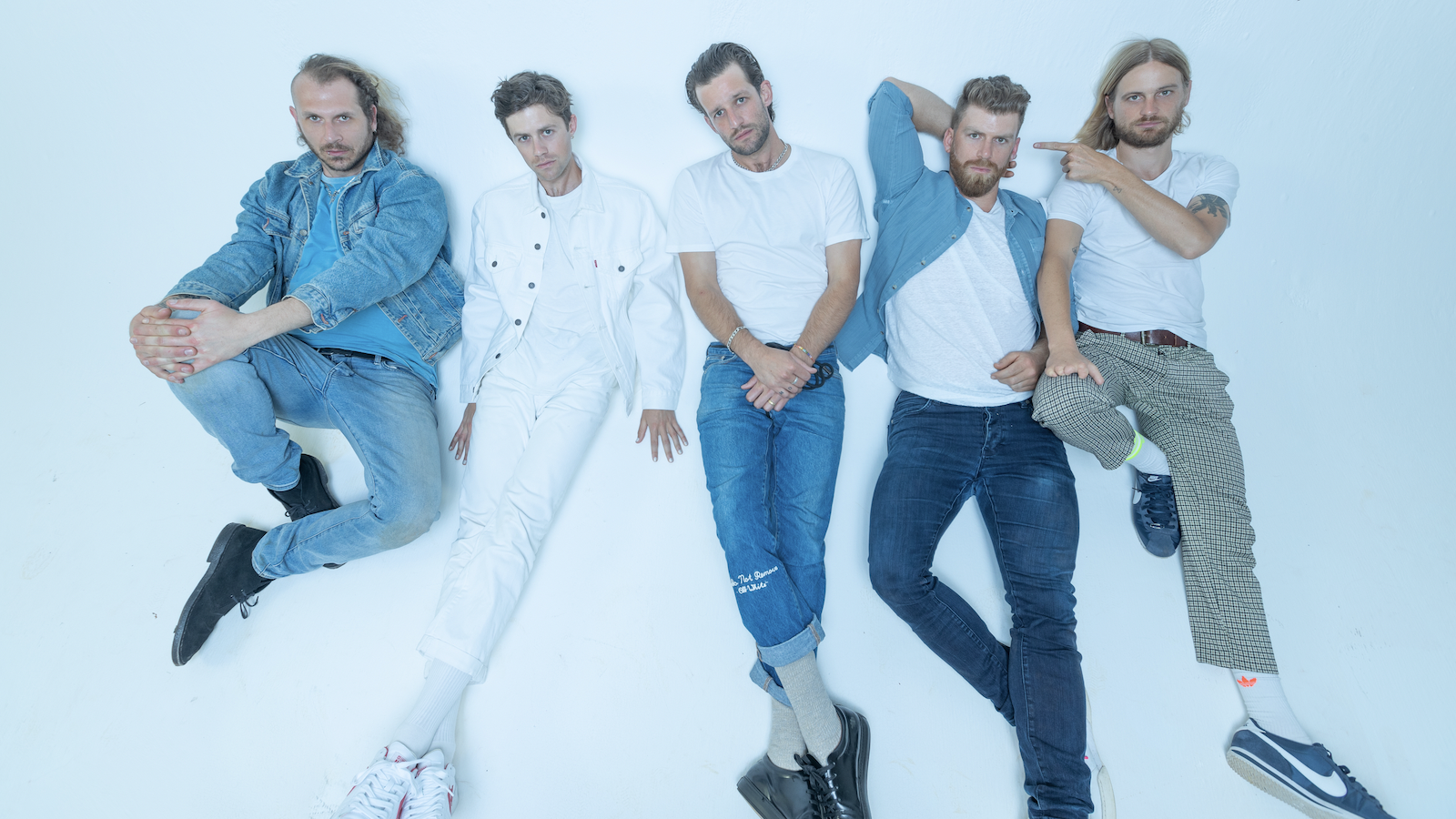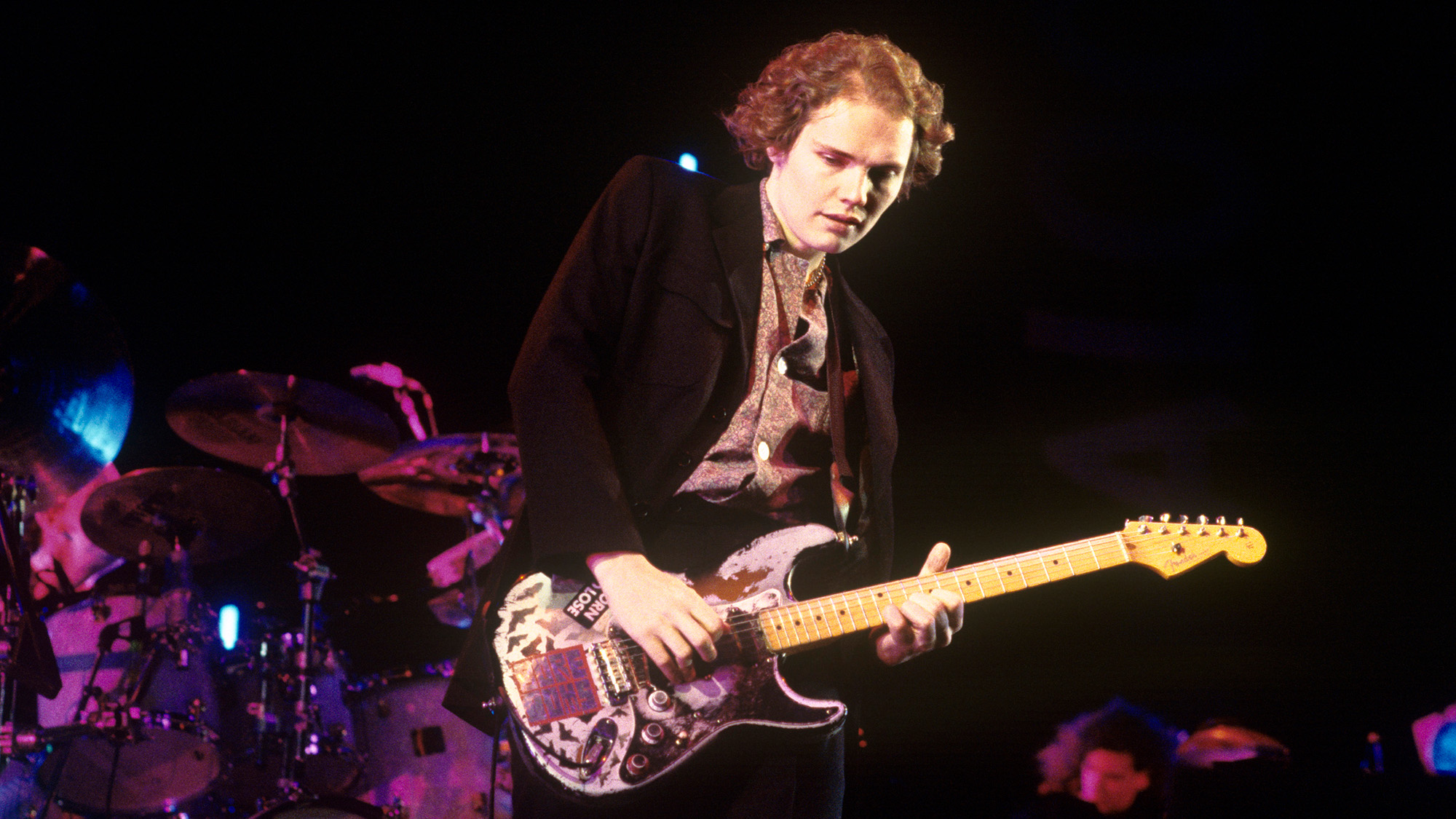The Rubens’ Izaac Margin: “I’ve kind of gotten over the guitar sounding just like a guitar”
0202 is an ambitious epic for the Sydney pop-rockers, but to pull it off, they had to scale things way back

Note: this article is also featured in Australian Guitar #142, which is out now wherever great magazines are sold! Click here to read more about what’s in this jam-packed issue!
If there’s one thing The Rubens can do better than virtually every other band in Australia right now, it’s bust out a catchy hook. Thanks in no short part to the anthemic “My Gun”, the Macarthur-native pop-rock powerhouse burst on the circuit in 2012 with their platinum-selling self-titled debut, and quickly countered one-hit-wonder fears with 2015’s gem-studded Hoops – the title track of which scored triple-platinum sales and took out the top spot in Triple J’s Hottest 100. They capped the trilogy in 2018 with the unexpectedly poppy, R&B-flavoured Lo La Ru, at which point The Rubens had accepted their place on the throne of the Aussie alternative scene.
2020 should have seen them make it to arenas with a colossal fourth effort – a self-produced epic stacked with tracks carefully structured to elicit the loudest singalongs possible. But alas, it wasn’t meant to be: COVID struck, tours were canned, and The Rubens’ continued soaring ground to a halt. What were they to do? Could LP4 be salvaged, or was it doomed to the cutting room floor?
Miraculously, the band found parallels between the subject matter they’d already set out to explore on the record, and the hopelessness felt at large in their communities. So they repositioned the record to reflect what they felt in the moment; dubbed “a forward-thinking album for a backward year”, 0202 sees The Rubens tackle themes of confusion, concern and callousness with a decidedly rosy outlook: there’s a palpable undercurrent of buoyancy to the LP’s 12 tracks, whether in the form of warbly, psych-esque keys on on “Live In Life”, tropical grooves on “Holiday” or the effervescent canter of a ‘verb-slathered lead on “Back To Back”.
It’s the kind of album we could all use right now – something upbeat and energetic to pull us from the melancholic drudge of a wasted year; something danceable and stage-ready to hype us up for the eventual return of full-scale live shows. To find out how The Rubens made the most of dismal scenes to brew up an enigmatic anthology of upbeat bangers, Australian Guitar caught up with founding fret‑wizard Izaac Margin.
I realise how cliché this sounds, but it feels like 0202 is the LP The Rubens have been inching towards this whole time. Not to say the first three records aren’t great, but this is where you’ve really ‘cracked the code’.
We feel exactly the same. It’s been a long time coming, and yeah, it’s definitely what our first three records have been leading to. It’s a good mix of everything we’ve tried to do – there’s a bit of a pop vibe, and we’ve brought in synths and different sounds, but there’s a lot of rock spirit in there too. And it’s still dark, but there’s a bit of light in there as well. I think Sam and Elliot’s songwriting is just the best it’s ever been. And the fact that this is the first album we recorded completely ourselves – our bass player Will [Zeglis] engineered everything and we all produced together, and then we sent everything off to a couple other people to have it mixed after the fact. We did it all at Will’s studio, and it all felt super natural. Everything came together exactly how we wanted it to, which was cool.
Do you feel more connected to the record, or that it’s more authentic to what The Rubens are right now, having done it all yourself?
Yeah! It was very relaxing! Most of the songwriting happened between Sam and Elliot – they’ll scratch up the early demos themselves, then send them off to the rest of us to add our own little parts onto, and then we’ll all come together and bunker down with them. We’d spend a weekend on each song, so each one was kind of separated. Sam and Elliot would send the demos to me first and I’d try to figure out the basic structure and ideas, and what kind of guitar sounds I’d want to put on there. And then we’d all come together at the studio and start off fresh with the drums, add some keys, write some guitar and then add some more instrumentation, then Will would squirrel off for a couple of hours and come back with his basslines all set, and then we’d have a song! It was a super natural and organic process.
All the latest guitar news, interviews, lessons, reviews, deals and more, direct to your inbox!
As a guitarist, did you feel like you had more freedom to play around with different styles and techniques?
I think I’ve had that freedom since the last album we recorded [Lo La Ru] with Wilder Zoby and Little Shalimar. I think that freedom started there because we were doing it all in our own little studio – we weren’t in some expensive New York studio with a producer standing there over your shoulder, making you feel uncomfortable. I would write at home; I would play the demos on a loop for a few hours and try to come up with something, or I’d just be in the studio with the guys, trying to improvise something with them. Even that felt a lot more comfortable because it was just like hanging out with some mates, there was no pressure to write a hit on the spot. So that kind of vibe started with [Lo La Ru], but now I’m really in my groove, and I think you can hear that on 0202.
I love the way this record really comes to life with headphones; at face value it has a really slick, synth-heavy palate, but when you really dive into it, you find these very densely layered soundscapes where the guitar plays so many different roles in a song, not just leading the melody. What was it like using the guitar as a much broader, more experimental tool on this record?
It was great! It’s what I’ve always really wanted to do. Honestly, over the last few years, I’ve kind of gotten over the guitar sounding just like a guitar. I think that’s probably because we’ve been doing it for such a long time, and I’ve just always listened to guitar music, so I’m a little bored with it. I do still love rock music, but you get a bit bored with everything sounding the same. Especially because I’m not as technically great as some other players – my thing is more just, like, mucking around with different sounds and trying to make a song sound as out-there and weird as possible.
How much of it is playing around with pedals, and how much happens in the digital realm?
I’ve got tonnes of pedals! I’ve got way too many pedals. It’s funny, though, because I only really used one or two of them on this record. I used an Electro‑Harmonix POG, and a ZVEX Lo-Fi Junky for that kind of vibrato-y compression. That’s pretty much it – maybe a bit of reverb, too. But that’s how I get my guitar to sound kind of synth-y: I’ll just bring in the different octaves to make it sound more like an organ, then f*** it up a little bit with the Lo-Fi and a chorus pedal, or something like that. My guitar playing is all about ambience and texture – it’s trying to create a feeling, rather than needing it to sound “like a guitar” all the time.

Ellie Robinson is an Australian writer, editor and dog enthusiast with a keen ear for pop-rock and a keen tongue for actual Pop Rocks. Her bylines include music rag staples like NME, BLUNT, Mixdown and, of course, Australian Guitar (where she also serves as Editor-at-Large), but also less expected fare like TV Soap and Snowboarding Australia. Her go-to guitar is a Fender Player Tele, which, controversially, she only picked up after she'd joined the team at Australian Guitar. Before then, Ellie was a keyboardist – thankfully, the AG crew helped her see the light…
